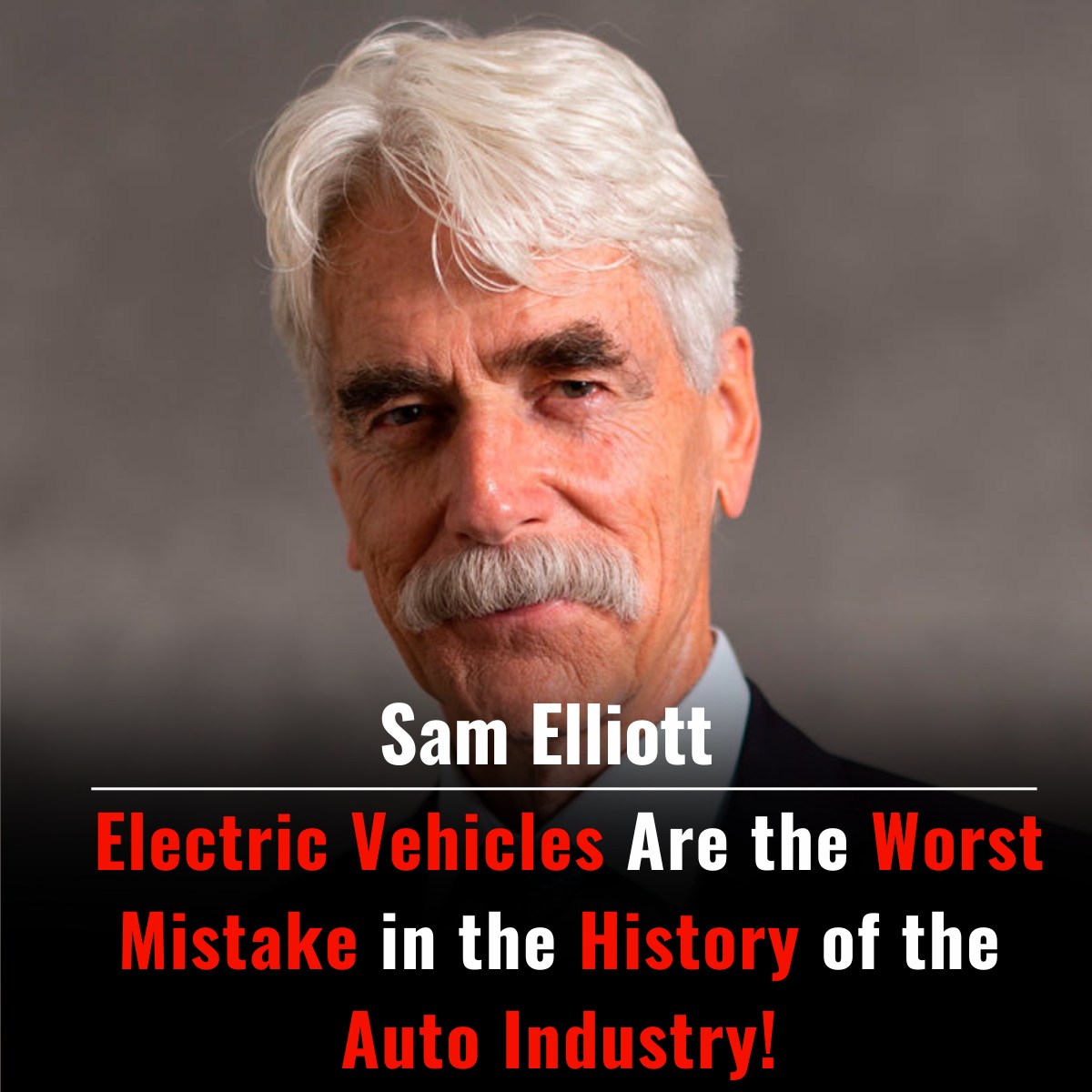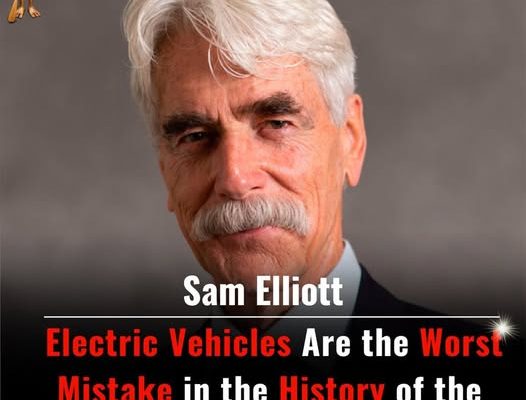Posted by
–
Sam Elliott: ‘Electric Vehicles Are the Worst Mistake in the History of the Auto Industry!’
In a fiery critique that has ignited debate across the automotive and environmental communities, iconic actor Sam Elliott has declared electric vehicles (EVs) to be “the worst mistake in the history of the auto industry.” Known for his deep, commanding voice and roles in Western films, Elliott’s comments have sparked widespread reactions, both in support and opposition.
Elliott’s Controversial Statement

During a recent interview promoting his latest project, Elliott was asked about his thoughts on the growing shift toward electric vehicles. His response was blunt:
“Electric vehicles are the worst mistake in the history of the auto industry. They’re being pushed on us under the guise of progress, but they’re stripping away the soul of driving and the freedom it represents. We’re trading horsepower for politics, and I’m not here for it.”
Elliott’s remarks reflect a broader sentiment shared by many traditionalists who view the EV revolution as an attack on the legacy and culture of internal combustion engines. His criticism centers on concerns about government mandates, the environmental impact of battery production, and the loss of the visceral experience that classic cars provide.
Industry and Environmental Reactions
Unsurprisingly, Elliott’s comments have drawn a mixed response. Environmental advocates were quick to criticize the actor, pointing to the urgent need for clean energy solutions to combat climate change. Proponents of EVs argue that electric cars are a crucial step toward reducing carbon emissions and achieving sustainability in transportation.
“Sam Elliott’s nostalgia for gas-powered vehicles overlooks the bigger picture,” said environmental activist Maria Lopez. “The auto industry’s transition to electric is not just about politics; it’s about securing a livable future for generations to come.”
On the other hand, Elliott has found support among car enthusiasts and critics of EV mandates. Many echoed his sentiment, arguing that the push for electrification often ignores the cultural and emotional connection people have with traditional cars.
The Debate Over EVs
The rise of electric vehicles has been nothing short of transformative for the auto industry. Companies like Tesla have paved the way for widespread adoption, and major automakers such as Ford, GM, and Toyota are rapidly expanding their EV lineups. However, the transition has not been without controversy. Critics highlight the environmental cost of mining rare earth metals for batteries, the challenges of recycling old batteries, and the strain on electrical grids as key concerns.
Elliott’s comments tap into a growing frustration among those who feel that the EV movement is being forced upon consumers without sufficient consideration for alternative solutions, such as hydrogen fuel cells or synthetic fuels.
Sam Elliott: A Voice for the Traditionalist?
Elliott’s rugged persona and ties to Americana make him a natural spokesperson for those who value tradition and independence. His critique of electric vehicles resonates with a demographic that sees the shift to EVs as symbolic of broader cultural changes they may not fully embrace.
Still, others argue that Elliott’s stance represents a reluctance to adapt to inevitable progress.
“Change is hard, but it’s necessary,” said auto industry analyst Jake Thompson. “We’re not just talking about cars; we’re talking about the future of our planet. Nostalgia can’t outweigh the need for sustainable innovation.”
What’s Next?
As the auto industry continues its march toward electrification, voices like Sam Elliott’s highlight the ongoing tension between progress and tradition. Whether his remarks spark meaningful dialogue or deepen divisions remains to be seen, but one thing is clear: the debate over electric vehicles is far from settled.
For now, Sam Elliott’s critique serves as a rallying cry for those who believe that the essence of driving is at risk in the age of electric cars. And for others, it’s a reminder of the challenges that come with transformative change in any industry.
